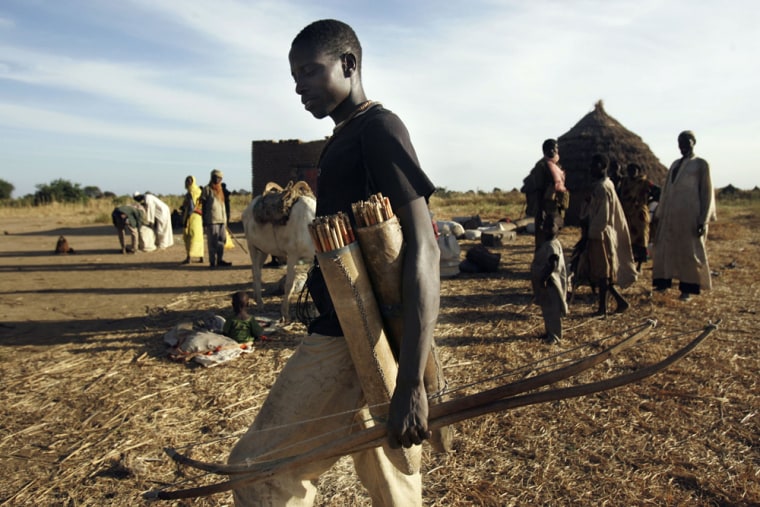The fires of ethnic cleansing in Darfur are now raging in eastern Chad. More than 20 villages have been systematically set on fire here in the last 10 days. Monday, Chad's president declared a state of emergency. And now some are asking whether this area has become a second Darfur.
On the morning of Nov. 8, the farming village of Tamajour became the latest target.
When we found it two days later, Tamajour, home to 600 black Africans, was still smoldering. Scattered in the remains — charred corn, schoolbooks and a Koran. A thatched roof came down on some of the people who didn't leave.
The Arab militia, the Janjaweed, acting on behalf of the Sudanese government, had swept in on horseback, firing heavy weapons, torching thatched huts, burning three children and an elderly man to death. The Janjaweed's goal is nothing less than to wipe ethnic Africans from these lands. People only have bows and arrows to protect themselves. They don't have guns.
The only way to safety was to walk 70 miles to the nearest town. There we found Tamajour's survivors.
One 75-year-old woman's husband had been caught on fire. She threw her body on his to save him. She suffered second-degree burns. He died.
Another man said Janjaweed soldiers called him "a slave," before shooting him twice in the back.
And then, under the shade of a calsadra tree, we found Miriam. She tried to appear strong, but couldn't hide her worries about her sick children. Since the attack, her five-year-old refuses to eat and her three-year-old needs medicine for his eye infection.
"My children are dying from the cold," she told us. "We don't have anything to eat. I am really, really angry at the Arabs who chased us from our village."
She told us all she wanted was her life back. We offered to take her back to Tamajour to see what she could salvage. Only the clay rim of her hut remained. Suddenly, she climbed into a storage jar and found what she had hidden when she heard the Janjaweed begin shooting. The money was all burned, but there were mattresses for her family to sleep on. It was little comfort.
"How can I be happy," she asked, "when everything is burned?"
But, in another pot, she found some hidden grain, enough for her family to survive on for now. And then, with her precious grain, slowly, Miriam walked away from the only home she has ever known into an unknowable future.
Monday, when humanitarian groups, including USAID, went to investigate another village that had been attacked by the Janjaweed, they were fired upon.
